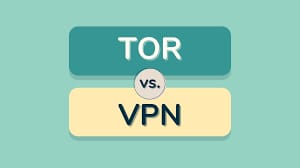Tor is a free distributed network that makes it nearly impossible for third parties to trace your online activities. It is simpler to set up than a VPN and is much safer. Whether you are looking to access geo-restricted content or to surf the web privately, it may be worth looking into.
Tor makes it impossible for third parties to trace your online activity
Tor is software, an anonymous network, and an organisation that makes it nearly impossible for third parties to track your online activity. The idea behind Tor is that people should be able to communicate freely without leaving any physical or digital evidence behind. While the organisation is primarily associated with criminal activity, it is also used for legal reasons. Tor can be used by whistleblowers, dissidents, journalists, and victims of crime to keep their communications confidential and secure.
Tor works by sending your encrypted traffic through a network of random servers. It also automatically cleans your cookies and browsing history after each session. It also uses other tricks to push back against tracking software. For example, it opens connections via a different circuit, making them look like they originated from different computers. Because of this, websites cannot link your activity to you.
The Tor network is composed of thousands of servers that are operated by volunteers around the world. Its decentralised nature makes it hard to shut down and has several advantages over unsecured connections. Since Tor is distributed and has no main server or headquarters, no one can spy on you.
It is easier to set up than a VPN
If you’re looking for a no lag VPN alternative, Tor is one of the best options. It’s free and much easier to set up. Tor’s system works by using a system of servers called middle relays. These are essentially anonymous computers that pass traffic on their path from a Tor gateway to the next server. The first layer of encryption is removed at the entry node, which means that the person intercepting the message cannot read it. A middle node removes the second and third layers of encryption and passes the message to the next server. Eventually, the message arrives at the Exit Node, which is the final server in the chain.
While Tor’s privacy features are attractive, it’s also important to remember that it is susceptible to hacking, so it’s vital to take extra precautions while browsing. A VPN is necessary because some Tor nodes have been compromised in the past, exposing users and intercepting their traffic. If a hacker were to gain access to the Tor network, they’d be able to find out everything you’re doing online.
It is more reliable than a VPN
A VPN and Tor both use encryption to protect your internet traffic. They are popular privacy tools. VPNs encrypt data once, while Tor encrypts your data multiple times. This means that the government or any other organisation cannot decrypt your data. A VPN changes your IP address and encrypts your internet connection.
A pro version of VPN which you can purchase using your usdt wallet is more secure because it hides your IP address, but you must trust your provider. If you’re trying to access the dark web, a VPN won’t help. A standard connection is not encrypted, so your traffic goes directly to the website that’s on the other side.
A VPN also allows you to bypass geo-restrictions. Netflix, for example, blocks certain content based on geolocation, so a VPN will enable you to spoof your location to access the content you want.
It is safer than a VPN
A VPN service encrypts your traffic and sends it to a secure intermediary server. Several VPN service providers operate multiple servers worldwide and offer different features and protocols. They all encrypt internet traffic, making it difficult for hackers to intercept it. Premium VPNs use top-grade 256-bit encryption systems that are impossible to crack without expert knowledge.
VPNs are a good idea for protecting your privacy, as they protect your data and internet connection. They also help you access content that’s blocked in your region. Although a VPN protects against censorship and the leaking of personal information, you must be prepared to pay for the service. In addition to the cost, it’s essential to read the logging policy of a VPN service to know exactly what your information is and how long it’s stored.
One of the main downsides of a VPN is that it can expose your real IP address. Tor encrypts your traffic, but your operating system’s IP address and location are not encrypted. So if you accidentally unencrypted data on a website, you may be exposing your IP address.

